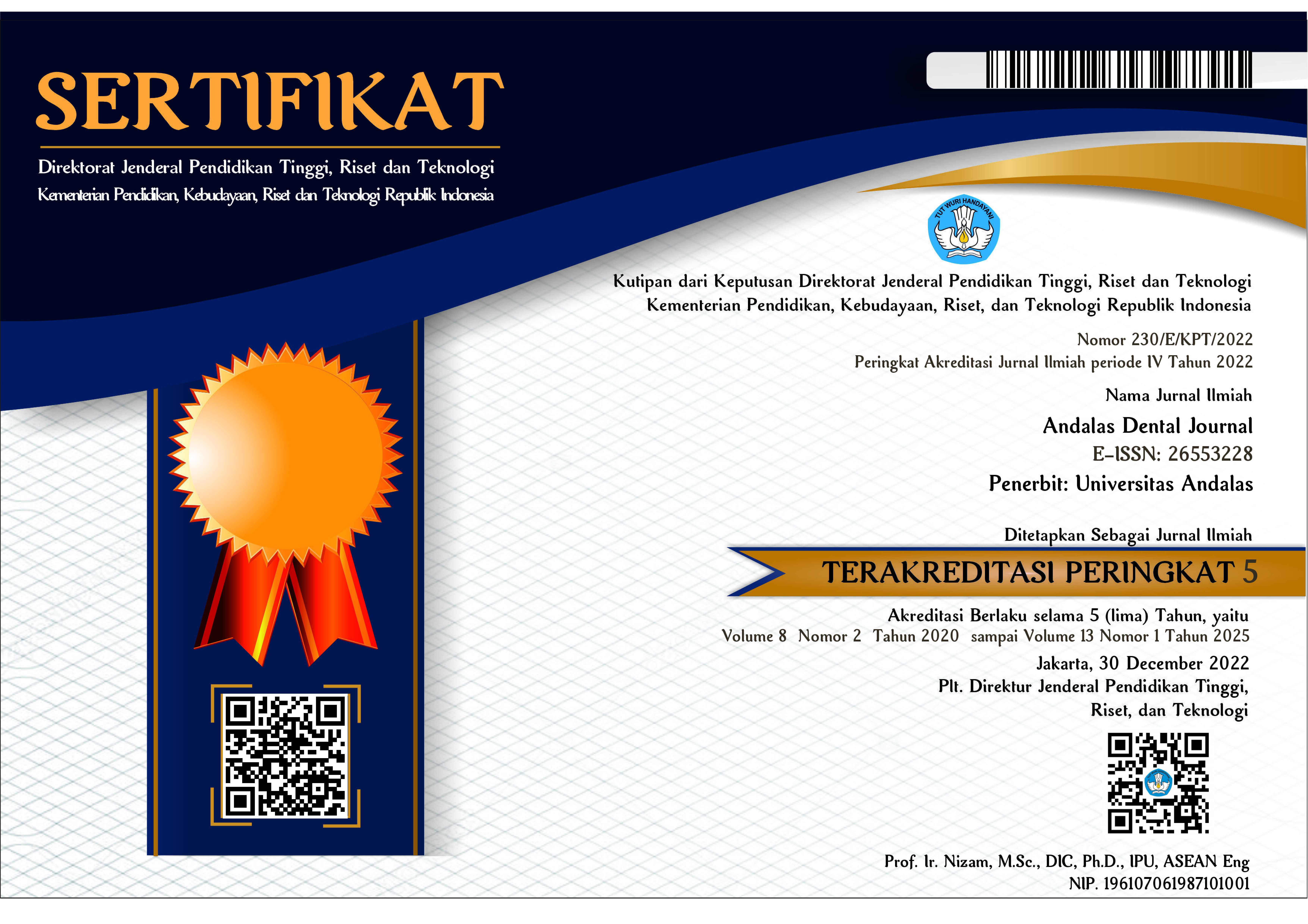EFEKTIVITAS MEDIA POP-UP CARD TERHADAP PENGETAHUAN KESEHATAN GIGI DAN MULUT ANAK USIA 8-9 TAHUN
Abstract
Dental caries is a dental problem that often affects children. One of oral and dental health problems etiology is behavioral or negligence factor to the oral and dental health. This happens due to lack of knowledge about the importance of maintaining oral and dental health, especially in children. Attractive learning media is necessary to improve the knowledge about oral and dental health. The aim of this study is to determine the effectiveness of pop-up card media toward oral and dental health knowledge of 8-9 years old children. This study used a non-equivalent control group design. Pre-test, treatment and post-test were conducted. Sampling was conducted by random and simple sampling, then the samples were divided into two groups, 23 third grade elementary school students of SDN 23 Echoes Jati Padang were included to the experimental group. This group was taught with oral and dental health education by using pop-up card media and 23 others were included into control group taught with oral and dental health education without pop-up card media. Analysis of the data was conducted using McNemar test. Statistical test results using McNemar test showed a significant increase in the knowledge. Pop-up card media effectively improved the knowledge of experimental group with p value of 0.000 (p <0.05). Based on the research that has been conducted, it can be concluded that pop-up card media is effective to improve knowledge of 8-9 years old children.
Keywords:Children, Pop-up Media, Knowledge















